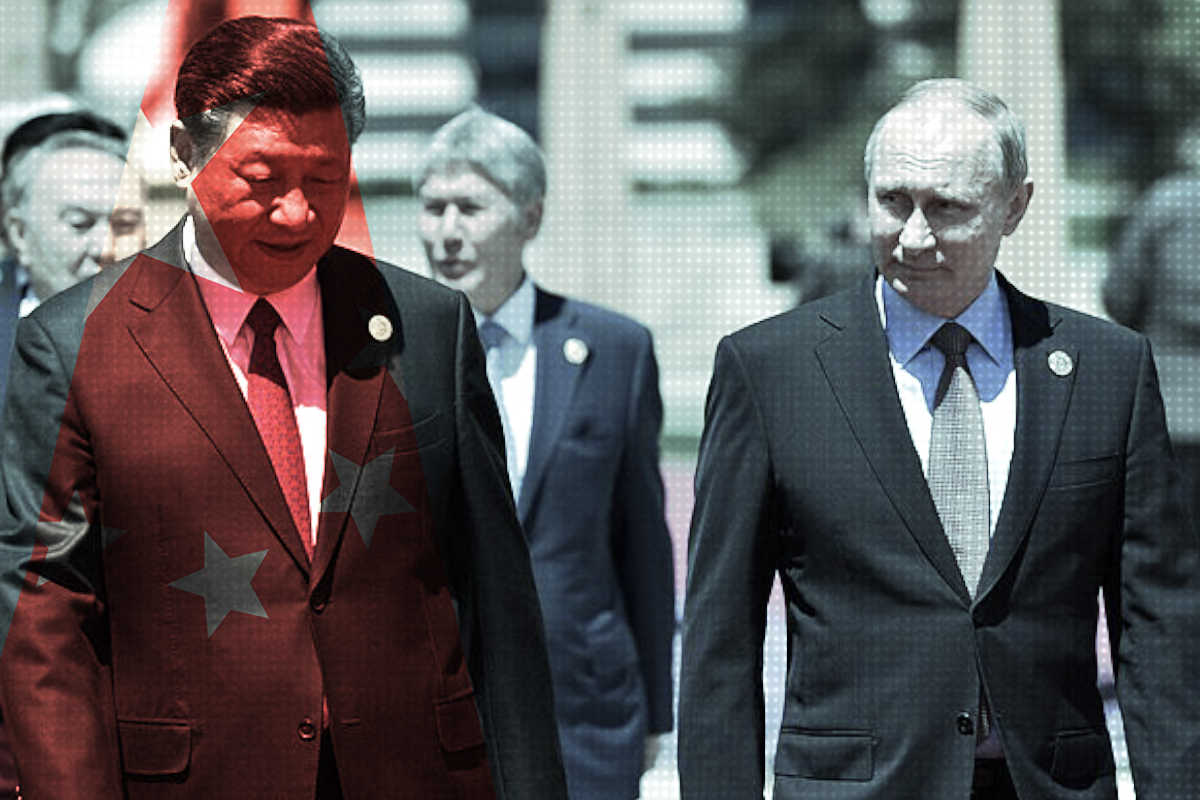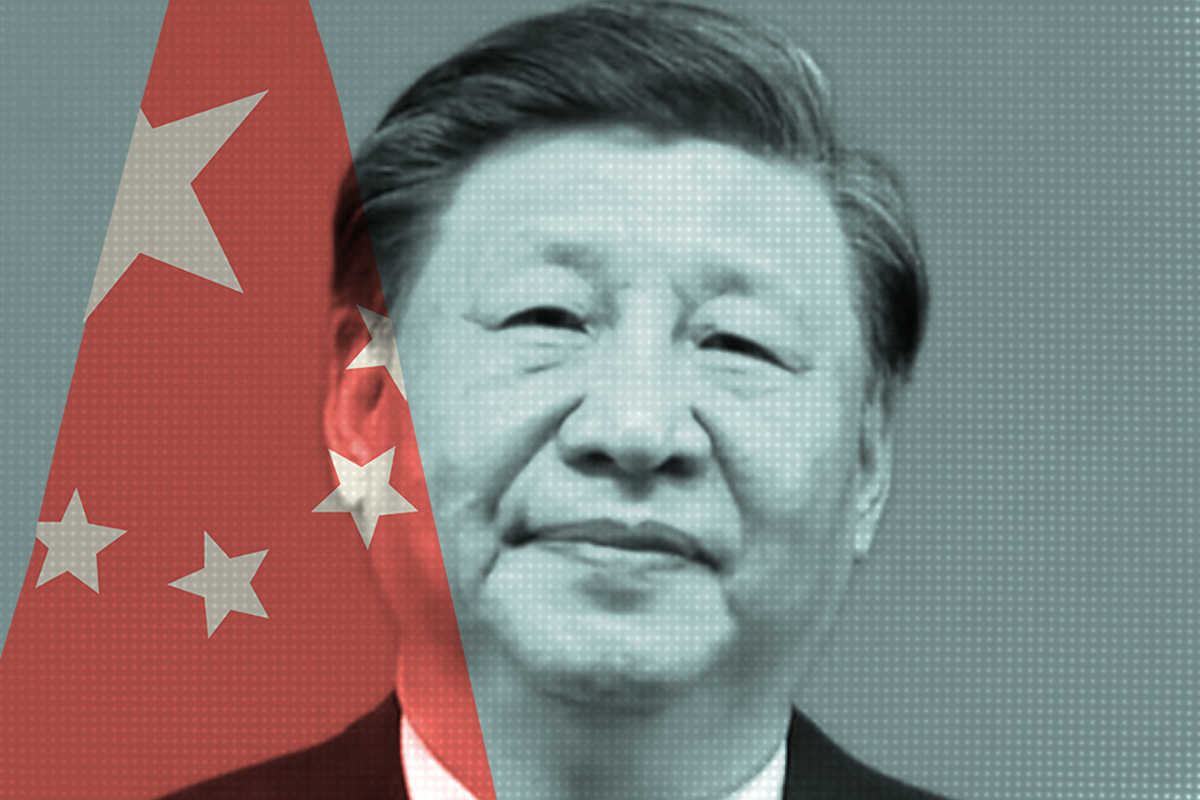As the latest public personality in China to be verbally attacked en masse by web users and become a media hot topic, sociologist Li Yinhe (李银河) is feeling the force of creeping social change in the country. She is playing an unenviable role, you might say, in the dress rehearsal for free speech in China, the revolutionary idea that all Chinese have the right to speak their own mind and make their own decisions about what is truth.
On July 21 Li Yinhe, a sociologist and well-known expert on sex and gender (who proposed for a third time this year that gay marriage be legalized in China), presented a talk in Nanjing in which she reportedly discussed everything from one-night stands to incest. Nanjing’s Jinling Evening News ran what most now agree was a news report with a negative spin on July 23, and suggested Li had said in her talk that she had a “desire for multiple romantic relationships” (Li later told Y Weekend her words had been taken out of context, that she was expressing not a personal wish but rather a hope for social diversity).
In any case, the Jinling Evening News article created a sensation online as netizens rushed to make their own views on sex and marriage known, many issuing personal attacks on Li Yinhe. Capitalizing on obvious reader interest, newspapers and magazines followed suit, printing editorials and summaries of the controversy. Li Yinhe told Y Weekly she hadn’t ruled out a lawsuit, but found the idea troublesome: “In order to clear my reputation, must I sue them [the Nanjing newspaper]? . . . I don’t want to get involved in a lawsuit, that’s too much trouble. Some people might say that by getting involved in a lawsuit over such a thing I’m just trying to build myself up?” [2005 article on Li at Xinhua in English with photograph][Li Yinhe on rural unrest at Danwei.org].
China Youth Daily called the Li Yinhe controversy and others like it examples of “comment posting culture”, in which not only web users but also other print media follow a news topic with intensity and make their views known. “Along with the development of the Internet, a kind of ‘comment posting culture’ (跟帖文化) has become popular”, the newspaper wrote on August 6. “It already exists on more than just the web, expanding to print media and with an influence not to be overlooked”.
While “free speech”, where it concerns criticism of Communist Party leaders or government policy, remains extremely sensitive, the issue is being discussed more generally in the media in cases like the recent Li Yinhe controversy. In an editorial last week, Shanghai’s Oriental Morning Post (东方早报) said that “what should be most precious in an open society is that everyone have the right to speak”. With reference to post-structuralist theory, the article suggested each person has a “right” to their own “readings” of the truth, a radically new concept to find in a major newspaper in a country where the Communist Party has traditionally claimed a monopoly on the truth, and where “guidance of public opinion” remains the cardinal principle of media policy.
The Oriental Morning Post response to the Li Yinhe controversy follows, with excerpts from the original Jinling Evening Post report and Li’s rebuttal in Y Weekly:
——————–
HEADLINE: Be Slow to Anger, please, Li Yinhe
— What should be most precious in an open society is that everyone have the right to speak. The most difficult thing about free speech is tolerating that speech we find most abhorrent. —
While I don’t share Li’s point of view, I admire her for having the courage in challenging social prejudices; and I despise those netizens who heaped their scorn on her (particularly those who tried to turn her personal life against her). Still, the report that appeared in Jinling Evening News [and launched the controversy] belongs to a different category [from these online attacks]. And judging from Li’s condemnation of the newspaper it’s difficult to find any outstanding points of untruth [in the Jinling report], much less anything constituting a violation of law. At most this newspaper wrote a negative news report on Li’s talk in which it described how some audience members broke with the use of strips of paper to submit questions [to Li Yinhe] and debated with her on the scene. As to the accuracy of these descriptions Li has offered no challenge. From the viewpoint of readers this was definitely a scene to attract one’s attention, and it’s no surprise it found its way across the Internet.
Li, who is highly-educated, understands that news reports may stray despite the best efforts at objectivity. This is particularly true with such explosive topics [as sex and family] about which people can’t help but be moved. Starting from different points of view, people will naturally see different “facts” . . . People emphasize what they want to see and that is precisely what they see. It’s hard to talk about which version is “objective”.
What most infuriated Li Yinhe was that this newspaper [Jinling Evening News] said she “desired multiple romantic relationships”. She said after the fact that by using “desired” she meant not that she desired “multiple romantic relationships” but that she desired diversity . . . But even in her rebuttal [interview with Y Weekend] Li said: “Things like multiple romantic relationships, one-night stands, I think these are simply new kinds of social relationships. As [French philosopher] Foucault has said, we already have marital relationships, family relationships, but these social relationships are far too few. Our people are capable of creating many different types of social relationship”.
Isn’t it at least an understandable error for any normal person, on hearing words like this, to assume that she “desired multiple romantic relationships”? . . .
We have all been edified by the various postmodern textual analyses of the 20th century, such as the right to [various] readings (诠释权), etcetera. Any text has independence from its maker, and others naturally have a right to their own readings. Honestly, reading Li Yinhe’s allegations after the fact I too find it hard to believe she doesn’t desire multiple romantic relationships, and believe moreover that there are contradictions in her own thought of which she is unaware. Looking at various elections in the United States we see that the candidate’s every sentence is taken and used in inflammatory ways by his opponent, garbled and taken out of context, twisted. Tell me, who has ever brought a lawsuit for such a thing? Never. The reason is simple: you can’t monopolize readings of your own texts. All you can do is exercise your own right to make a reading [or interpretation] and compete with the interpretations of others.
This is where Li Yinhe is wrong. Perhaps she only wants to say, “That’s not what I meant”, that others twisted the facts.
Actually, “Know thyself” is a much harder exhortation than most of us realize. Socrate’s greatest lesson to humanity was that in most instances we don’t know ourselves well enough, although we may believe mistakenly that we do. Jinling Evening News wrote a report she [Li Yinhe] does not approve of, making a reading of her beliefs that varies from her own. As a public personality (公共人物) Li has sufficient media resources to make express her views. All of us readers are waiting to be convinced. But if you have sufficient ability to instill reason [make your views known through the media] but resort instead to the law, does that not lead us to believe you are short on reason?
Online media have given people precious space to express their own speech freedoms. Those of us who eat by means of our words [media] have the greatest interest in preserving this kind of freedom. Regrettably, there is an unfortunate trend of late, namely the use of the law by those who want to shut up speech they don’t personally like. We have, for example, the case of Fang Zhouzi (方舟子), who was ordered by the court to apologize to those he criticized [for exposing an act of academic plagiarism]. I’m not familiar with the details of this case so can’t offer my own criticisms, but it concerns me. If Fang Zhouzi were to use his own website to launch a false and systematic campaign against me, I might regard myself as a victim. I could choose either to ignore him or respond to him, but I would have no need to take him to court. If we tie Fang Zhouzi up in legal wrangling so that he spends all his time fighting lawsuits and has no energy to do other things then we will be short one level of supervision (少了一重监督), and what good will there be for our society in that? [More on Fang Chouzi from Paul Mooney, Chronicle of Higher Education].
So I exhort public personalities, Li Yinhe included, to be more tolerant of the media, even to the point of letting people make errors. What should be most precious in an open society is that everyone have the right to speak. The most difficult thing about free speech is tolerating that speech we find most abhorrent.
——————–
Here are translated portions of the Jinling Evening News report on Li Yinhe’s talk in Nanjing:
Invited to attend an “Eastern Valentine’s Day” forum at Jiangsu Television on July 21, well-known sociologist Li Yinhe arrived at Nanjing’s Xinjiekou International Theater to give a talk “about love”. [This was for “qixi”, the Chinese Valentine’s Day, the seventh evening of the seventh month, when Herd-boy and Weaving-girl are supposed to meet].
[Article mentions that when discussion starts the viewers have many questions and opinions. Questions are submitted to Li on pieces of paper.]
In her talk, Li Yinhe had already revealed her desire for “multiple romantic relationships” (多边恋) . . .
Many viewers expressed their doubts and asked on their strips of paper whether the idea of “multiple romantic relationships” broke with the traditional concept of the “nuclear family” and whether it would create inequality and chaos in society. Li Yinhe’s answer was a bit forced: “All things should be rich and colorful. If all families are merely one father and one mother, then that would be too bland”.
Extramarital relationships are the “cancers” standing in the way of happy families in urban life, [but] Li Yinhe spoke for them at the event. “Anyone has the right to have sexual relations with third persons other than their partners. Love affairs are wrong only because they are in violation of the Marriage Law. Concerning one-night stands, if you are single, not only do you have this right but there are no moral problems involved. So the only advice I would have for those having one-night stands is that they be safe and prevent the spread of diseases” . . .
The questions the audience members asked became more and more sensitive and Li Yinhe’s answers made people more and more surprised. When the topic of “incest” came up, Li Yinhe said: “Prohibitions on incest were originally considered from the standpoint of heredity, to prevent the congenital flaws. Incest does not touch on moral issues. I think with the promise they do not reproduce, there is no reason why cousins should not allowed to unite”.
One old woman in the audience could listen no longer. She stood up excitedly and said loudly: “I want to say a few words. I want to say a few words. I think one man and one woman is still beneficial to the development of society. It’s still better if people are more conservative!”
The old woman’s words brought a peal of applause from the audience. An old man on the back row could no longer keep his seat. He stood up, turned his body to the audience and said: ““Girls, pick up your pens for me and write down what I have to say! In love, this you must understand. You must not be to loose in your attitude.” Faced with this attack, Li Yinhe looked noticeably uncomfortable onstage.
Following are translated portions of Li Yinhe’s interview with Y Weekend, a magazine published by the China Youth Daily group. In the interview, Li Yinhe responds to the article in Jinling Evening News that sparked the online controversy over her comments:
Y Weekend: After that article, “Li Yinhe Desires ‘Multiple Relationships'”, came out I saw your claim on your personal blog that you did not say the word “desire”, is that true?
Li: I did use this word “desire”. In my talk I expressed hope for a society of cultural diversity. I don’t desire “multiple relationships”. What I desire is diversity.
Y Weekend: But why did this article want to allege that you desired multiple relationships?
Li: It’s definitely hostile! There’s also that little phrase after the headline that says I “provoked the anger of the crowd”, which is totally untrue.
When questions were asked at the time the atmosphere was charged. Later a 50 or 60 year-old woman stood up and said: ‘I think it still should be one man and one woman, everyone should raise their consciousness’. This woman came many times before to the Academy of Social Sciences looking for me. I won’t dare expose her personal situation. But one time, after we’d talked at CASS, she suddenly turned around as she was leaving and shouted back at me: ‘Let me tell you, Wang Xiaobo, he doesn’t love you!’ What was that about? You tell me. Isn’t there something a bit wrong with her nerves?
After the talk was over, people came up and wanted my signature. Later I went to the elevator. There were so many people the elevator door wouldn’t close. What kind of provoking the anger of the crowd is that?
So it’s clearly ridiculous of this one little Nanjing paper to report that I provoked the anger of the crowd.
Y Weekend: You did talk about multiple romantic relationships, one-night stands and incest at the Nanjing event. While we’re on the subject, do you yourself accept multiple romantic relationships and one-night stands?
Li: I still prefer one husband and one wife. Multiple romantic relationships refer to sexual relationships involving three or more people. This and one-night stands are too much trouble for my liking, so to say that I long for them is simply a violation of fact.
But just because I don’t like something personally doesn’t mean people don’t have a right to them. I have to respect their rights. You can’t say I like homosexuality just because I submit a resolution on same-sex marriage. If I research criminal behavior, does that mean I enjoy such behavior?
Actually, what I wish to emphasize are the sexual rights of citizens. As a citizen, anyone has the right to be master of their own body – this is a basic right. When it [that right] is infringed upon we must stand up and speak, is that not right?
Y Weekend: Why must you stand up and speak? On such a sensitive topic, aren’t you afraid people will attack you indiscriminately?
Li: This is my area of expertise. This is the type of research I do. To see that people have so many incorrect ways of thinking concerns me and I want to correct them. I only want to make correct concepts known. So what then?
Things like multiple relationships, one-night stands — I think these are simply new kinds of social relationships. As Foucault has said, we already have marital relationships, family relationships, but these social relationships are far too few. Our people are capable of creating many different types of social relationship – if you don’t like something, you can choose something else.
Y Weekend: When you emphasize the right to these things in such a way, does that give people the impression you are advocating them? Or that you are encouraging them?
Li: When you voice truths, does that always mean advocating them? During the talk I was objectively describing the situation in the West. I was just describing to everyone how the world is changing. But I was in no way suggesting that everyone should go out and do these things. I had already discussed how much your odds of getting a sexually-transmitted disease go up each time you add another partner. No one cared to report that.
Y Weekend: Some people said on the Internet that you had endorsed one-night stands and that this was sure to please those who have had on intend to have one-night stands.
Li: Endorsed? Um …… Please? Actually they already have a right. I’m only saying it out loud. What is clearly in our rights, no one dares to speak of.
What I want to say to them is that they have the right, but when they have a sexual relationship with a stranger, this is potentially dangerous.
[Posted by David Bandurski, August 15, 2006, 11:20am]




















